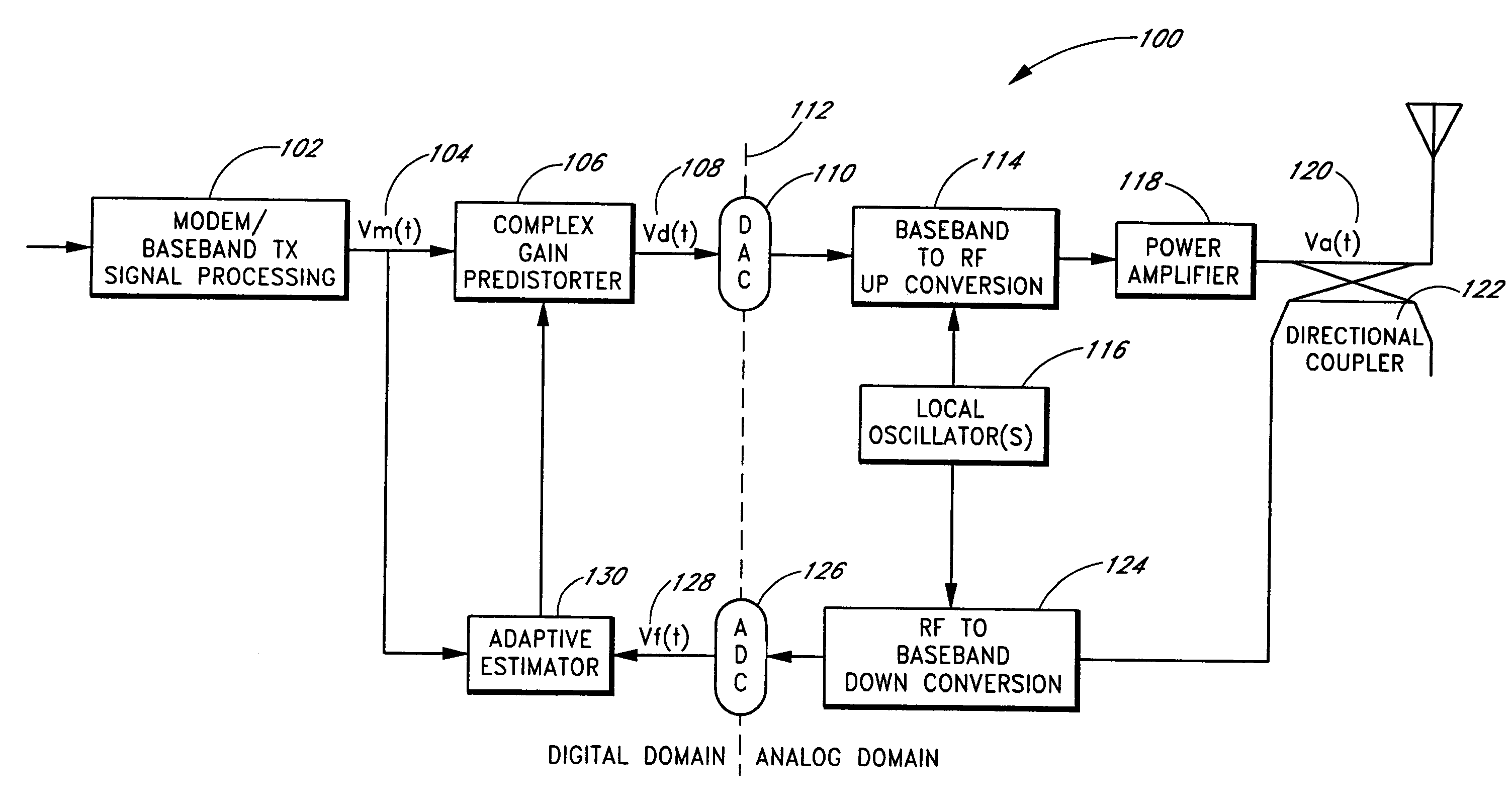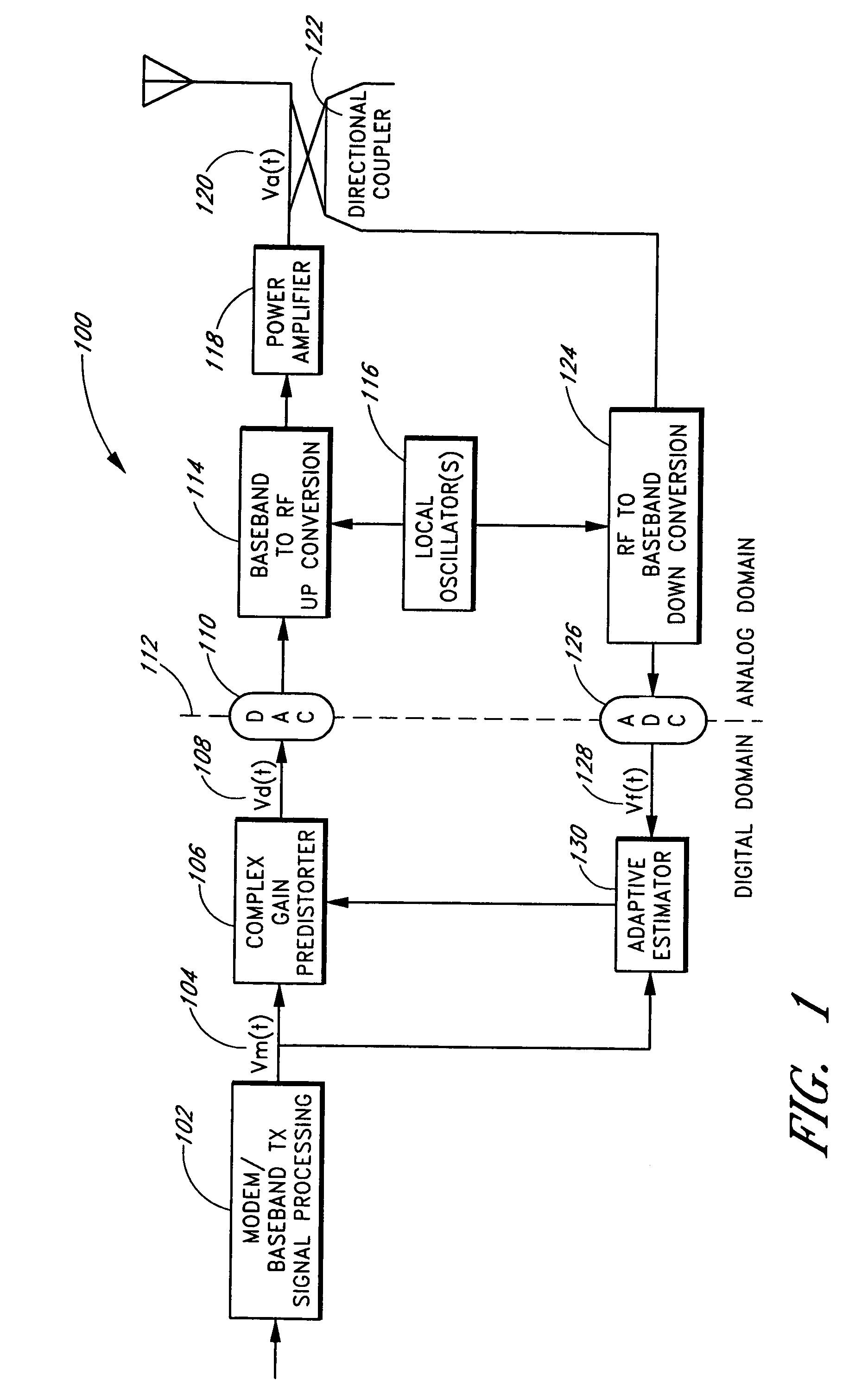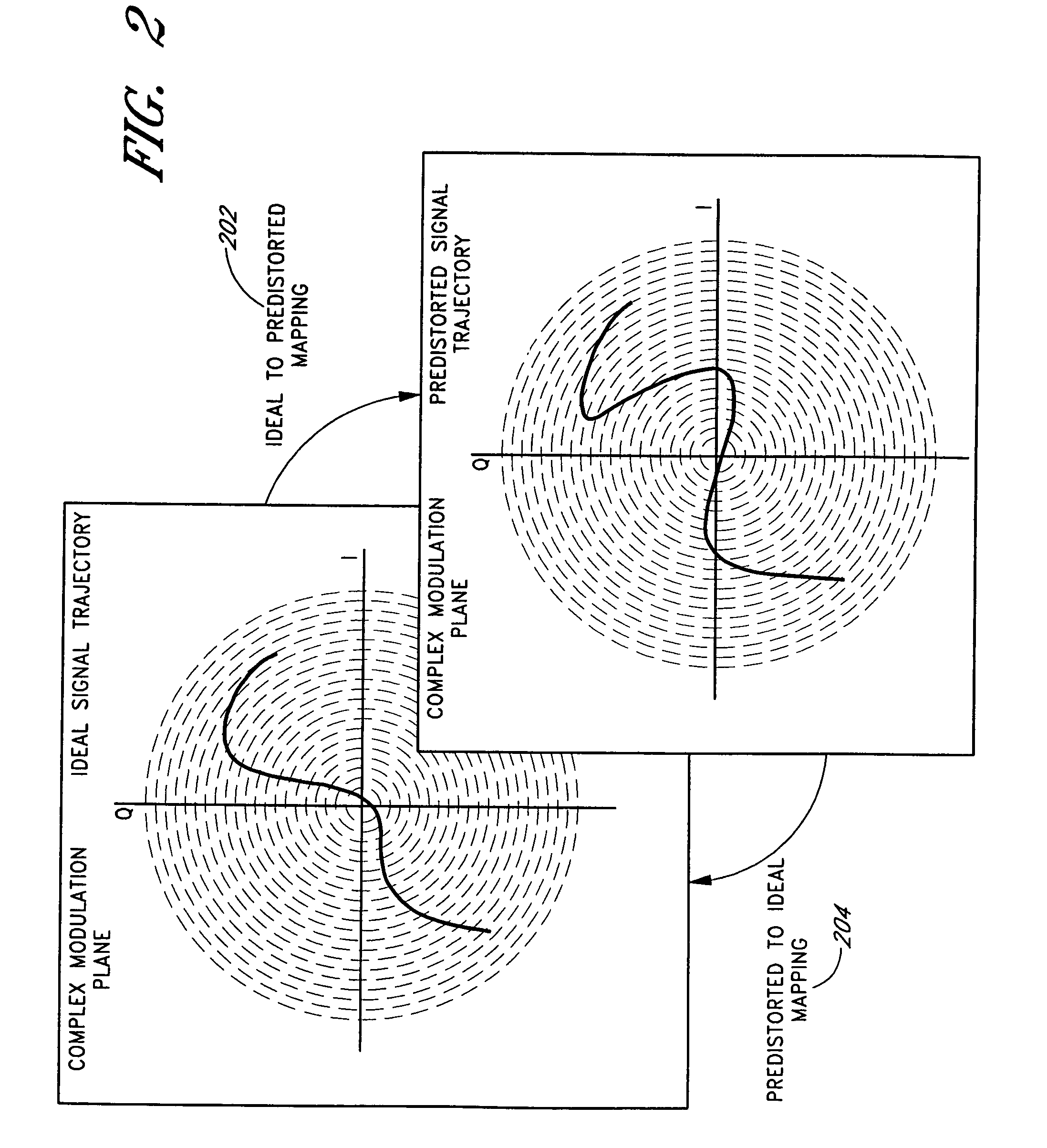Constant gain digital predistortion controller for linearization of non-linear amplifiers
a non-linear amplifier and constant gain technology, applied in the field of communication systems, can solve problems such as undesirable interference, interference in adjacent channels, and distortion, and achieve the effect of improving the stability of the predistortion entity and constant gain
- Summary
- Abstract
- Description
- Claims
- Application Information
AI Technical Summary
Benefits of technology
Problems solved by technology
Method used
Image
Examples
Embodiment Construction
[0059]Although this invention will be described in terms of certain preferred embodiments, other embodiments that are apparent to those of ordinary skill in the art, including embodiments that do not provide all of the benefits and features set forth herein, are also within the scope of this invention. Accordingly, the scope of the invention is defined only by reference to the appended claims.
[0060]Embodiments of the invention include a method and an apparatus for controlling and adapting digital predistortion linearizers for amplification of bandlimited signals using non-linear amplifiers. Advantageously, a predistortion function for a predistortion entity can be controlled to provide a relatively constant gain. The disclosed techniques can be applied to virtually any digital predistorter for an amplifier intended for bandlimited, and yet relatively wideband RF signals. The disclosed techniques can further be used in connection with multiple signals and with virtually any modulatio...
PUM
 Login to View More
Login to View More Abstract
Description
Claims
Application Information
 Login to View More
Login to View More - R&D
- Intellectual Property
- Life Sciences
- Materials
- Tech Scout
- Unparalleled Data Quality
- Higher Quality Content
- 60% Fewer Hallucinations
Browse by: Latest US Patents, China's latest patents, Technical Efficacy Thesaurus, Application Domain, Technology Topic, Popular Technical Reports.
© 2025 PatSnap. All rights reserved.Legal|Privacy policy|Modern Slavery Act Transparency Statement|Sitemap|About US| Contact US: help@patsnap.com



